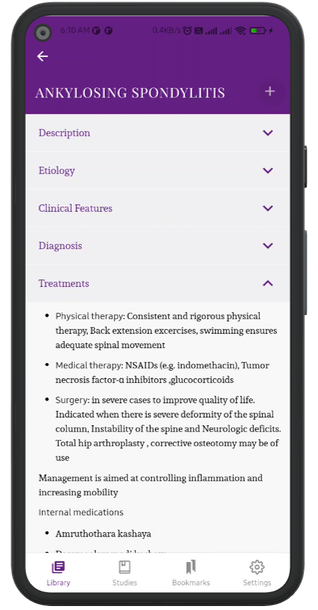SUBSTANCE USE DISORDER
Description
- Substance use disorder (SUD) also known as drug use disorder, is a condition in which the use of one or more psychoactive substances leads to clinically significant impairment or distress. Cannabis, nicotine (cigarette smoking), opium, hallucinogens like LSD, stimulants like amphetamine, anxiolytic drugs, inhalants (whitener, cough syrup, spray paint etc containing volatile solvents like toluene) are commonly abused substances other than alcohol.
- It is characterized by a craving for, the development of tolerance to, and difficulties in controlling the use of a particular substance or a set of substances, as well as withdrawal syndromes upon abrupt cessation of substance use.
- They act on the brain's reward system and affect emotion, mood, and perception thereby producing what is colloquially referred to as a “high.”
- Alcohol and nicotine use is the most common substance used
Types
Signs of addiction to a particular substance can be elicited by
- Chronic use
- Loss of Control
- The compulsion to use the substance
- Use of substance despite negative Consequences
- Craving
- Substance specific symptoms of acute intoxication, withdrawal should be noted based on the history obtained. Substance-induced psychosis is the commonest comorbidity of this condition. Substance-induced psychosis, acute anxiety reactions, Parkinsonism, peripheral neuropathy, AIDS and septicemia (due to IV drug use), violence and criminal activities etc are some of the common possible complications of substance use.
- Individuals with a substance use disorder will frequently harm themselves and/or others as a result of substance use. Patients with substance use disorders often present with other psychiatric conditions such as bipolar disorder, major depressive disorder, or anxiety disorder.
Impaired control
- Using the substance in larger amounts and/or for a longer time than originally intended
- Repeated failed attempts to cut down on the use
- Spending a great deal of time on substance-related activities (e.g., buying, using, recovering from use, etc.)
- Intense desire to obtain and use the substance (craving)
Social impairment
- Problems fulfilling work, school, family, or social obligations
- Problems with interpersonal relationships directly related to substance use
- Reduced social and recreational activities
Differential diagnosis
- Opioids - Respiratory depression, Absent proprioceptive reflexes
- Cannabinoids - Confusion, Hallucinations
- Cocaine - Ataxia, Epileptic seizures
- Amphetamine - Loss of inhibition, Delusion, Hallucinations
- Hallucinogens - Delusion, Hallucinations, Hyperreflexia
- Gamma-hydroxybutyric acid- Loss of Consciousness, Amnesia, Myoclonic twitches, nystagmus
Investigation
- Clinical diagnosis is as per the ICD11 or DSM 5 criteria.
- Blood profiling
Treatments
- 1st stage – withdrawal symptom management
- 2nd stage – Detoxification of body by sodhana therapy
- 3rd stage – Following relapse prevention techniques
- The practice of Yoga, satwavajaya chikitsa, association with Alcoholics anonymous/ Narcotic Anonymous are encouraged
Internal Medications
- Sankhupushpi + yashti churna
- Drakshadi kashaya –Associated agitation, irritation and anxiety
- Manasamitra gutika reduce Paittika upadravas
- Samana snehapana - Dhatryadi ghrita, Kalyanaka ghrita, Tiktaka ghrita
- Somalatha choorna – In sleep disturbances
Procedures:
- Snehapana - Dhathryadi / Tiktaka Ghrita
- Vamana / Virechana depending on rogibala
- Yogavasti
- Nasya with ksheerabala taila
- Takra dhara or Usheera kashaya dhara
- Sirolepa - improve sleep and reduce irritability
Department
Manasika Roga

